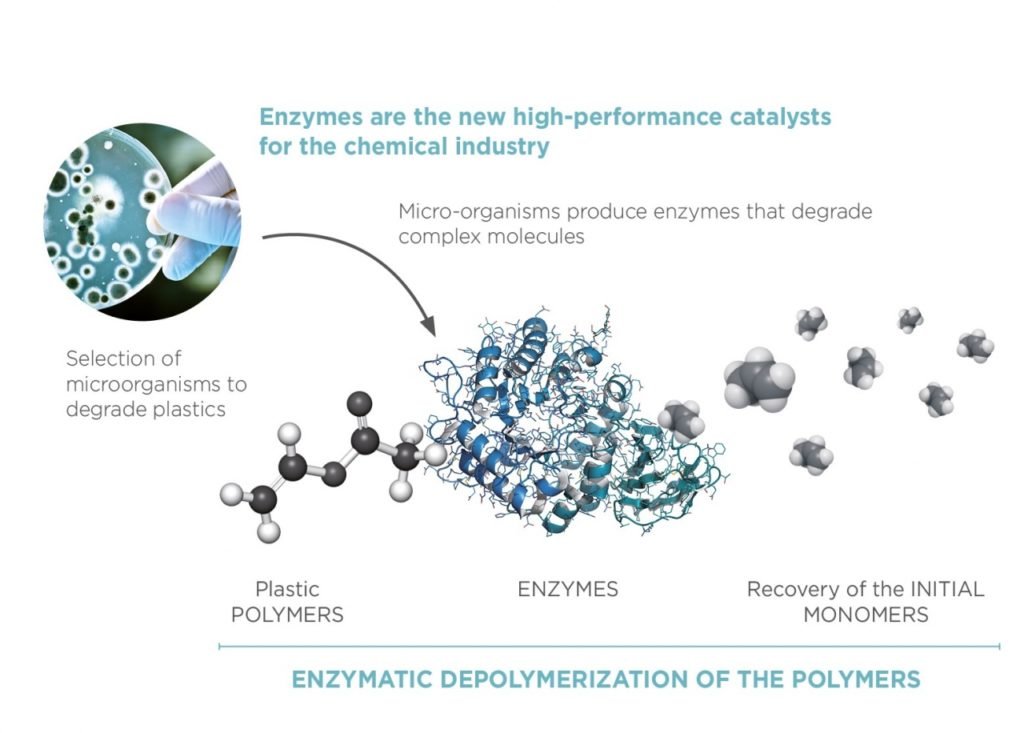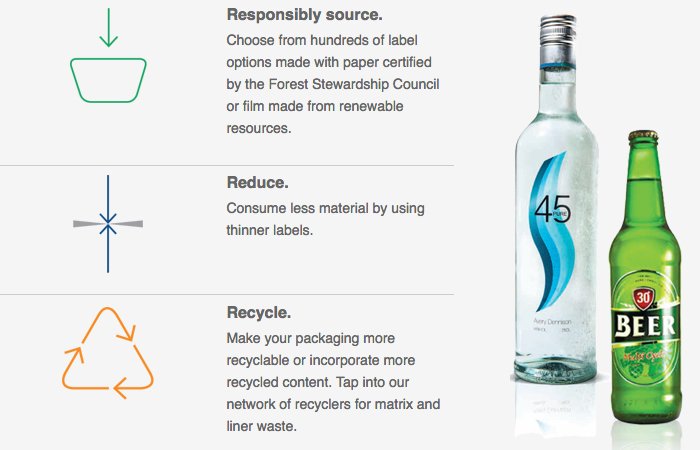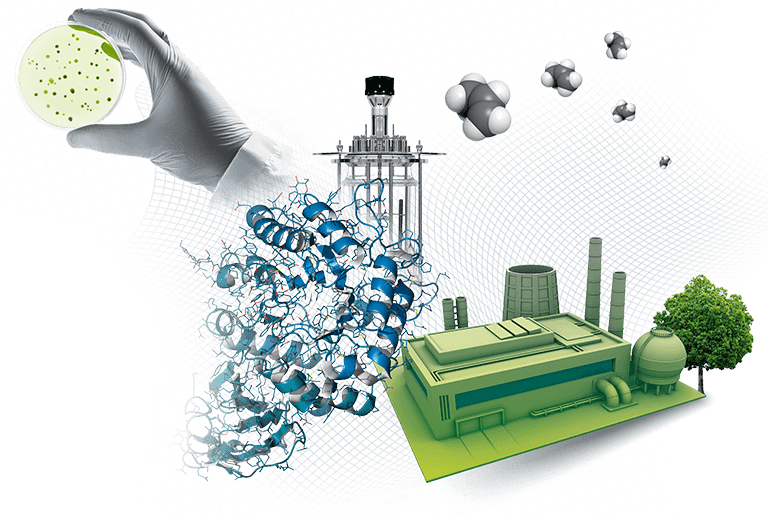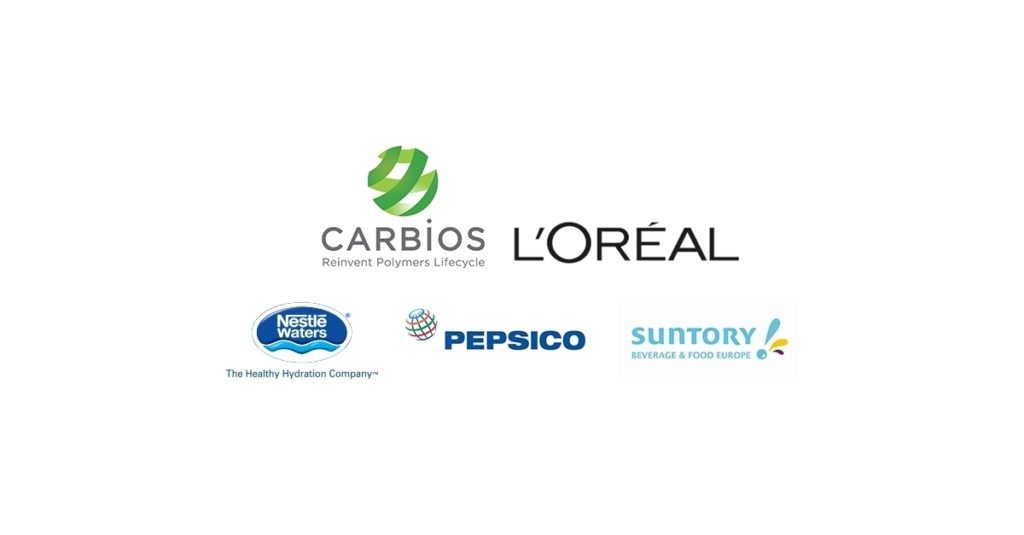Carbios has created a mutant bacterial enzyme that breaks down plastic bottles for recycling in hours. This was originally discovered in a compost heap of leaves, reduced the bottles to chemical building blocks that were then used to make high-quality new bottles.
Existing recycling technologies usually produce plastic only good enough for clothing and carpets. This novel enzyme on the otherhand can biologically depolymerize all polyethylene terephthalate (PET) plastic waste, followed by an extremely efficient recycling into new bottles.
The team used the mutated enzyme to break down a tonne of waste plastic bottles, which were 90% degraded within 10 hours. The scientists then used the material to create new food-grade plastic bottles.
Carbios has a deal with the biotechnology company Novozymes to produce the new enzyme at scale using fungi. It said the cost of the enzyme was just 4% of the cost of virgin plastic made from oil.
PET is the most common thermoplastic polymer and is used to manufacture bottles, polyester clothing fibers, food containers, and various thermoformed packaging and components.
Carbios’ recycling process, the first of its kind, initiates a real transition to a circular economy and can better prevent plastic pollution from harming our oceans and planet.
This innovative technology also paves the way for recycling PET fibers, another major challenge in guaranteeing a clean and protected environment for future generations.
Carbios was aiming for industrial-scale recycling within five years. It has partnered with major companies including Pepsi and L’Oréal to accelerate development. Independent experts called the new enzyme a major advance.
Reference- Carbios website, Journal – Nature, The Guardian










